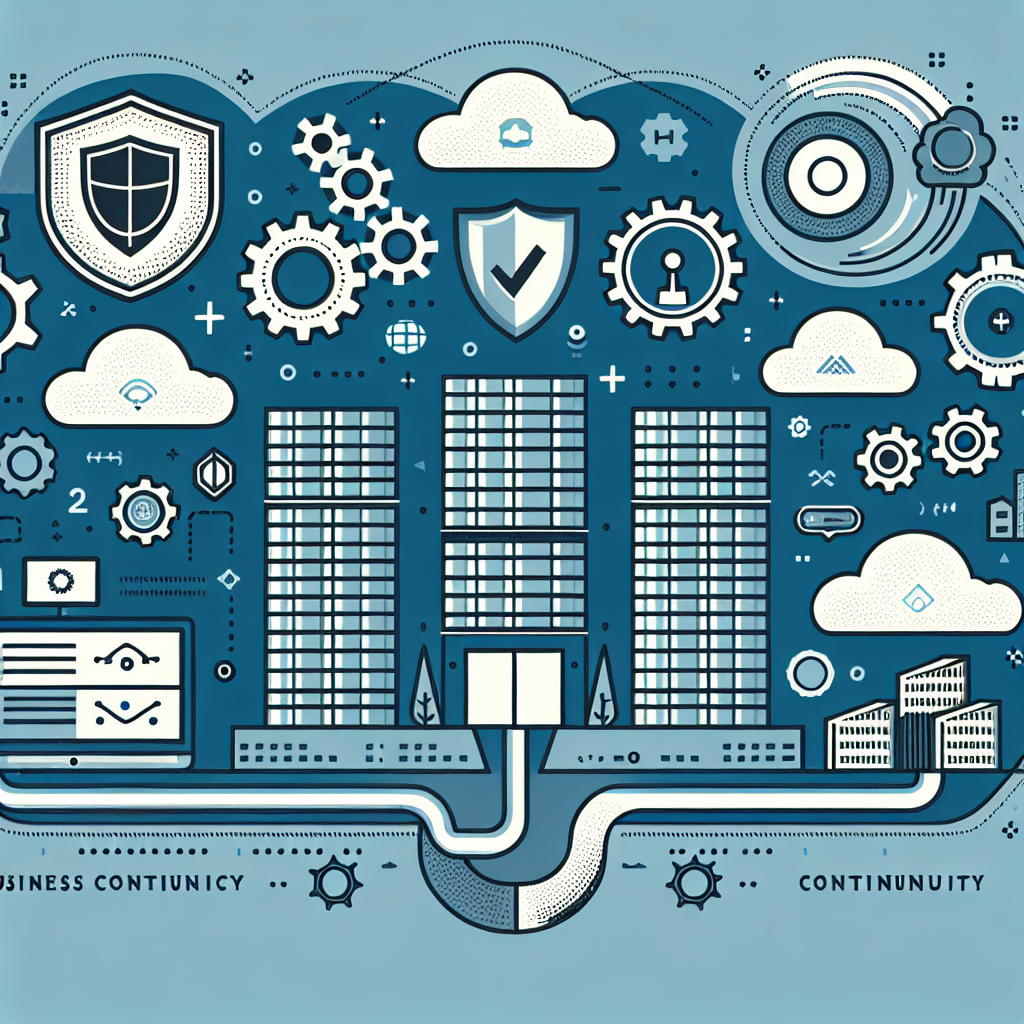In today’s digital age, data centers play a crucial role in ensuring the smooth operation of businesses and organizations. These facilities house and manage the critical information and systems that keep businesses running, making them a prime target for potential disruptions. From natural disasters to cyberattacks, there are a myriad of threats that can jeopardize the operation of a data center. That is why having a comprehensive business continuity plan in place is essential to ensure the resilience and reliability of a data center.
A business continuity plan is a proactive approach to managing and mitigating risks to ensure the uninterrupted operation of a data center in the face of disruptions. It outlines the steps that need to be taken to minimize downtime and ensure the continuity of operations in the event of a disaster or emergency. Building resilience in a data center business continuity plan involves identifying key components that are essential for maintaining operations and ensuring business continuity.
1. Risk Assessment: The first step in building resilience in a data center business continuity plan is to conduct a thorough risk assessment. This involves identifying potential threats and vulnerabilities that could impact the operation of the data center, such as natural disasters, power outages, or cyberattacks. By understanding the risks, data center operators can develop strategies to mitigate them and ensure the continuity of operations.
2. Redundancy and Backup Systems: Redundancy is a key component of resilience in a data center business continuity plan. This involves having backup systems and redundancies in place to ensure that operations can continue in the event of a failure or disruption. This may include backup power generators, redundant network connections, and duplicate hardware and software systems.
3. Disaster Recovery Planning: Disaster recovery planning is another essential component of a data center business continuity plan. This involves developing strategies and procedures for recovering data and restoring operations in the event of a disaster or emergency. This may include regular data backups, offsite data storage, and testing of disaster recovery procedures to ensure they are effective.
4. Communication and Coordination: Effective communication and coordination are crucial for ensuring the resilience of a data center business continuity plan. This involves establishing clear lines of communication with key stakeholders, such as employees, customers, and vendors, and ensuring that everyone is aware of their roles and responsibilities in the event of a disruption.
5. Training and Testing: Regular training and testing of the data center business continuity plan are essential for ensuring its effectiveness. This may involve conducting tabletop exercises, simulations, and drills to test the plan and identify any gaps or weaknesses that need to be addressed. By regularly testing and updating the plan, data center operators can ensure that it remains resilient and effective in the face of evolving threats.
In conclusion, building resilience in a data center business continuity plan is essential for ensuring the continuity of operations and the reliability of critical systems and information. By identifying key components such as risk assessment, redundancy, disaster recovery planning, communication, and training, data center operators can ensure that their facilities are prepared to withstand and recover from disruptions. By investing in a comprehensive business continuity plan, data center operators can protect their operations and ensure the resilience and reliability of their facilities.


Leave a Reply